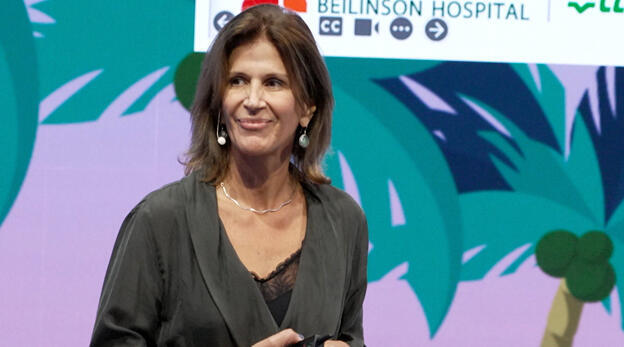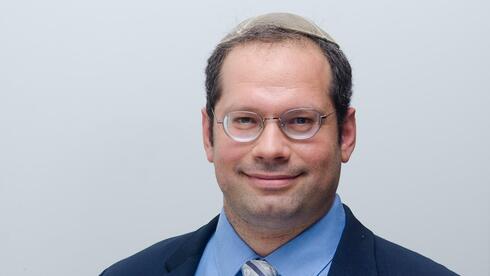
Miami 2024
"Constant emergencies have become routine, we built a new rehab department in a month"
Dr. Oshrat Fono-Yativ, Deputy Director of Beilinson Hospital, spoke at the Calcalist and Bank Leumi conference in Miami about the "war on several fronts" of the medical world: doctors recruited to the IDF reserves, a large number of wounded, working underground and ensuring a stock of medicines. "The war also emphasized the importance of remote medicine," she said.
Dr. Oshrat Fono-Yativ
(Credit: Tomeriko)
Dr. Oshrat Fono-Yativ, deputy director of Beilinson Hospital, described the immense challenges of running a hospital "under fire" during the prolonged war at the Calcalist and Bank Leumi conference in Miami. She shared the hospital's experiences in treating wounded soldiers, starting on October 7 and continuing throughout more than a year of conflict.
"The challenges were enormous and unprecedented," said Dr. Fono-Yativ. "These challenges required leadership, adaptability, and resilience—almost every day. It was a war on multiple fronts, where constant emergencies became the new normal. Our key insight was that we must act quickly and adapt solutions to a rapidly changing reality."
Dr. Fono-Yativ presented sobering statistics: over the past year, the hospital treated 1,032 wounded individuals. Of these, 500 were hospitalized, and 520 underwent emergency surgeries.
Beilinson was one of the few hospitals that established underground facilities. "We opened our underground hospital, adding 350 beds, and relocated teams and equipment to create a bunker—ensuring as safe and protected an environment as possible," she explained.
Dr. Fono-Yativ highlighted two additional challenges unique to the war period: "More than 100 of Beilinson’s doctors were urgently called up to serve in the IDF reserves. Even today, 29 of our doctors are on active duty at the front lines. Another critical challenge, which is not often discussed, is ensuring adequate stocks of medicine and supplies for several months in advance."
Dr. Fono-Yativ also shared a significant achievement: the hospital built a new rehabilitation department in just one month. "In Israel, there is a chronic shortage of rehabilitation beds in hospitals, and the war exacerbated this issue. To address it, we took the initiative and opened a new rehabilitation department in record time," she said.
Another innovation during the war was the increased use of telemedicine, which proved vital for patients who could avoid hospital visits during times of crisis or danger. Dr. Fono-Yativ pointed to cancer patients as a key example. "Many cancer patients were unable to travel to the hospital during the intense fighting. We began providing treatment remotely, ensuring they could stay safe at home," she explained.
She also shared impressive data: in the past year, the hospital conducted 100,000 remote medical appointments. This achievement demonstrated Beilinson’s ability to optimize departmental operations and adapt to the realities of wartime.
To hear her full remarks, click on the video above.















